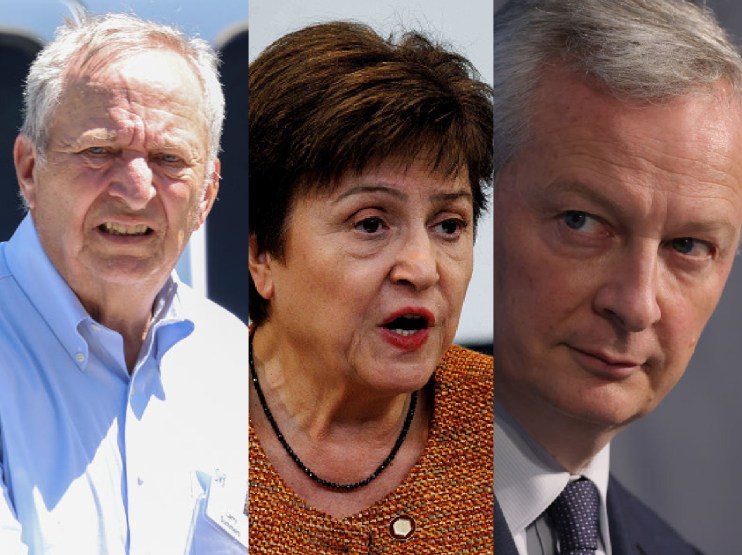Davos round-up: Optimism, the dangers of forecasting and subsidy competition

Optimism
As Davos draws to a close, participants will likely leave feeling more optimistic than when they arrived.
There was a mood of gentle optimism throughout, stoked by China’s reopening, rising hopes Europe can avoid a recession and continuing signs US inflation has passed its peak.
IMF managing director Kristilina Georgieva cautiously joined the chorus of optimism. The outlook for the world economy was “less bad than we feared a couple of months ago,” she said.
However, she noted “less bad doesn’t mean good…Be careful not to get on the other side of the spectrum from being too pessimistic to being too optimistic,” Georgieva warned.
Central Banks and data
Central banks didn’t have the best 2022 as a surge in inflation caught monetary gurus mostly unaware.
Larry Summers had advice for them in 2023. He said central banks should avoid “excessive forecasting” of policy trajectory and should avoid putting “their credibility at risk”. Instead, central banks needed to be led by the data.
“It would be a grave error for central banks to revise their inflation target upwards at this point,” he said, acknowledging that bringing inflation from four per cent to two per cent will likely be very difficult.
“Having failed to attain the 2% target and having re-emphasised repeatedly the commitment to 2%, to then abandon the target would do very substantial damage to credibility. If you can adjust once, you can adjust again.”
Subsidy competition
Europeans have been up in arms about President Biden’s inflation reduction act, which the bloc views as another example of US protectionism.
Bruno Le Maire , Finance Minister of France said : “the key question is not China First, U.S. First, Europe First. The key question for all of us is Climate First.”
Le Maire is hoping to extract some concessions from the US government on climate subsidies, but said there is “another way, which is to put in place a kind of European Inflation Reduction act,” Le Maire said.
Larry Summers seemed to welcome the competition. “A subsidy war about a very good thing is good,” he said.
“That is a very healthy kind of competition relative to all the kinds of competition the world has seen,” he said, urging fair competition that did not “wall off others and try to take down others”.